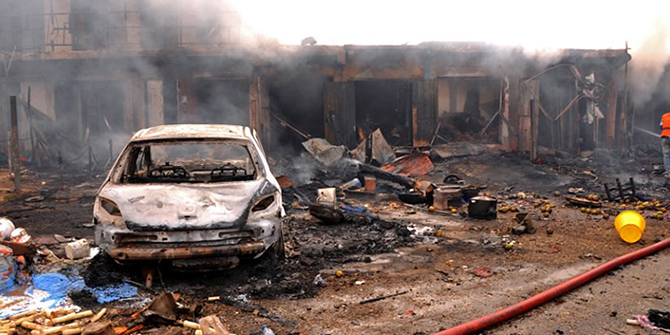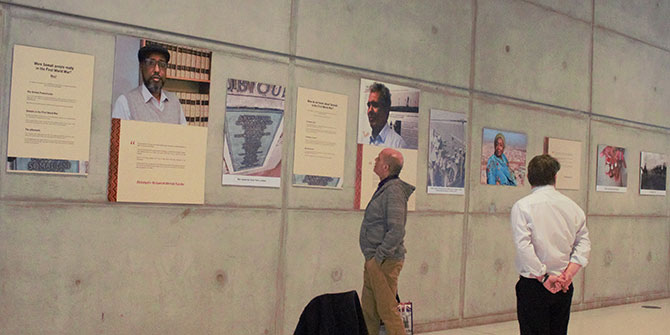LSE’s Dr Katrin Flikschuh says the global justice debate will no longer be sustainable if links are not formed with normative thinkers from Africa.
On 6 and 7 July, LSE will host a joint conference with the Universityof Ghana, Domesticating Global Justice: African Perspectives. It will bring together UK-based and African scholars to foster mutual intellectual exchange over issues of shared moral and political concern.
Over the past 20 years, global political theorising has become the norm in Western academic institutions. Even though most of the theorising ostensibly addresses non-Western contexts, efforts have rarely been made to develop links with academic counterparts in non-Western contexts. Africa, in particular, continues to be marginalised intellectually.
Part of the reason why African academics have been excluded from the global justice debate is that there is relatively little normative theorising in the African academic context. Political study in Africa tends still to focus on empirical rather than normative issues; moreover, African political thinking generally remains concerned with domestic or continental issues, such as the study of post-colonial society. There is very little written on global issues from African perspectives.
Nor has there been much interest among Western normative theorists t engage with non-liberal normative perspectives; this despite having initiated a nominally global discourse. Indeed, both sides have failed to reach out to each other. The question arises, though: how can a discourse be truly global if it does not embrace voices from all corners of the globe?
According to Flikschuh, there appears to be hesitation on both sides. African academics often appear somewhat reluctant to engage, given previous experience of disappointment. From their perspective, there have been too many promises of mutuality, but little actual delivery. On the Western side, there is a similar degree of apprehension. The Western debate is very sophisticated theoretically. The Western debate is nonetheless characterised by questionable assumptions about how the global poor live and think. Were Western thinkers to come face to face with representatives of the communities they theorise about in standard liberal terms, the assumptions standardly made about the lives of distant others might change quite radically.
The hope is that this conference will go some way to redress this imbalance. Simply put, the idea is to put African and Western thinkers in a room together and see how they do. At this point, the hope is less for substantial areas of overlap or agreement on both sides and more for an honest and frank exchange of views and airing of possible differences. The imperative now is to begin to forge personal and intellectual connections that will establish the basis of fruitful future collaborative research. With the latter in mind, there are plans for a follow up event of a similar nature at the University of Ghana next year.
If you are interested in attending this conference, please contact Katrin Flikschuh (K.A.Flikschuh@lse.ac.uk). There is no registration fee, but places are limited and participants should ideally seek to attend most sessions to ensure successful discussion across individual sessions.





